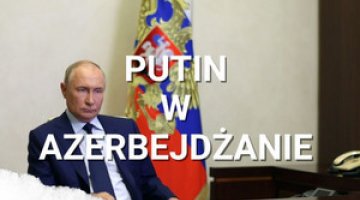Analyses
The scandal over the Patriarch Kirill
Since the last week of March, Russian Internet users and the independent media have publicised the business and moral scandals involving the head of the Russian Orthodox Church, Patriarch Kirill. The main cause for criticism, which gradually turned into a media campaign against the Patriarch and the whole Russian Orthodox Church, was the scandal over the luxury flat he owns in the centre of Moscow. Additionally, the media dug up other charges against the Patriarch from the past, including Kirill’s involvement in the duty-free import of tobacco goods into Russia in the 1990s on the pretext of humanitarian aid, alleged contacts with the secret services and the possession of luxurious goods, which runs counter to Orthodox Church law.
Commentary
-
The Patriarch has faced a grassroots criticism on the part of Internet users and the opposition supporters. This criticism can be interpreted as an objection to the strengthening of ties between the Russian Orthodox Church and the government. Even though in December 2011 after the demonstrations against voting fraud during the elections Kirill called on the Russian government to engage in dialogue with society, he swiftly changed his position: he unequivocally endorsed the candidature of Putin in the presidential elections and criticised the protesters. Furthermore, Kirill has recently fuelled the discontent of the Internet users and opposition by making negative comments about them and demanding a severe punishment for the members of punk rock group Pussy Riot who organised a happening against Vladimir Putin in Moscow’s Cathedral of Christ the Saviour.
-
It cannot be ruled out that the media campaign which discredited the Patriarch Kirill could have been fuelled to a certain extent by representatives of the ruling elite or his potential opponents within the Orthodox Church. For the government the weakening of the position of the Patriarch may be a way to guarantee further unconditional loyalty of the Orthodox Church towards the Kremlin and making sure that the Church abandons possible attempts at winning autonomy in the future.
-
The reaction of the high-ranking members of the church hierarchy to the scandal may prove that there is no common media strategy within the Russian Orthodox Church and that the Church displays an inability to hold dialogue with society in a crisis situation. Not only did the attempts to refute the accusations fail, but they have actually intensified the wave of criticism and became the subject of ridicule on the Internet.
- Patriarch Kirill’s involvement in scandals referring to business and morality will have a negative impact on his reputation and the image of the whole Orthodox Church and is likely to weaken its position in Russian society. Despite the fact that the Church has a rather limited leverage on the public attitudes in Russia, it has been aspiring for years to a role of a moral authority and an intermediary between society and the government. Nevertheless, this critical and vehement reaction from part of society to the scandals involving the Patriarch reveals that the Orthodox Church is not able to meet the spiritual needs of many Russians and is perceived as an element of the system of power, rather than a religious institution.




